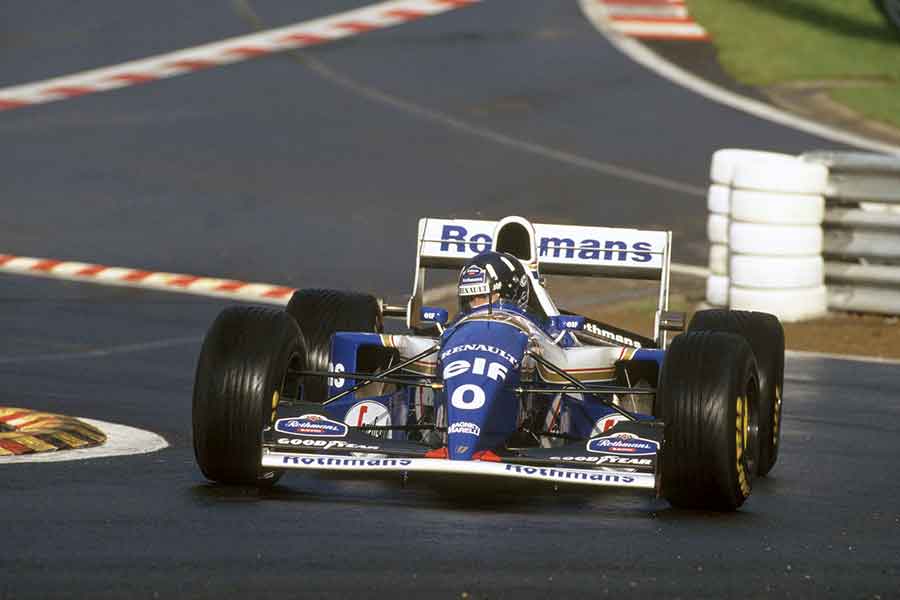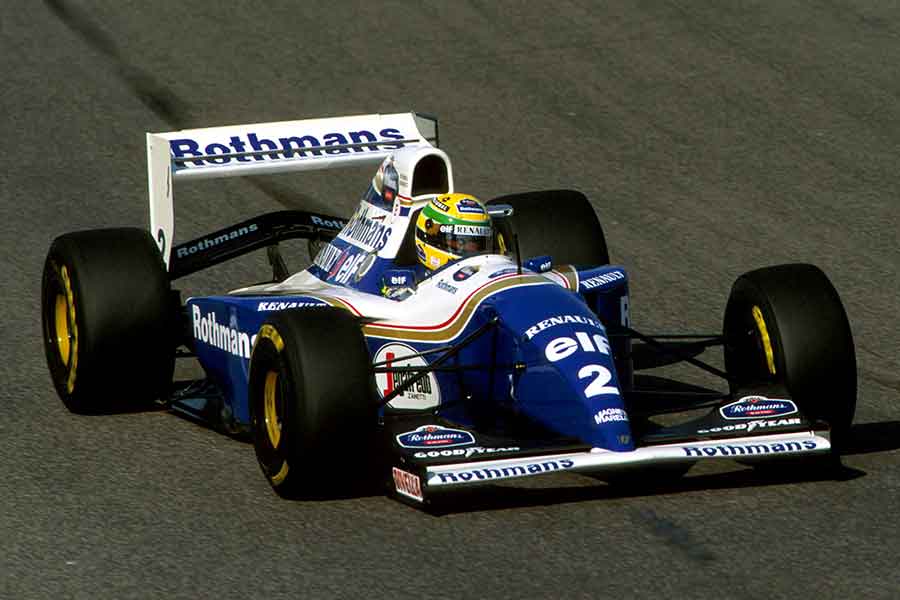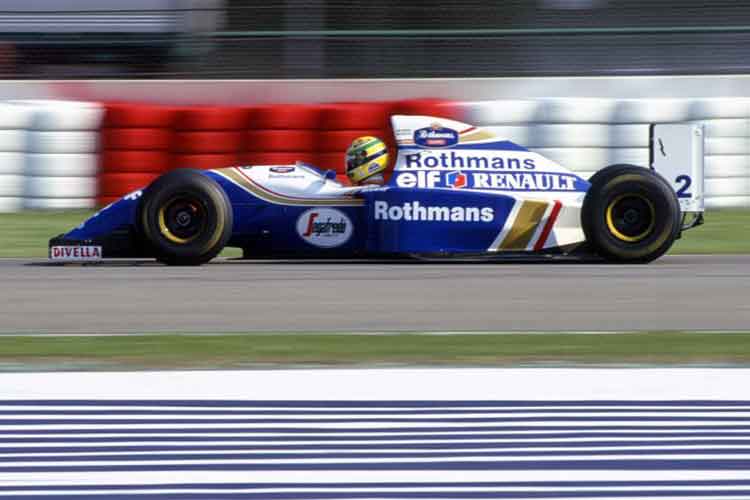Williams FW16
Williams FW16 was a car that won the Constructors’ title for the Rothmans Williams team in 1994 Formula One World Championship.
Built to meet new regulations
The car designed by Adrian Newey and Patrick Head was the successor of the highly successful Williams FW15C which won both titles in the previous season. Unfortunately, the FW16 is best remembered as the car in which Ayrton Senna was killed in the crash at Imola.

Damon Hill and Ayrton Senna were driving Williams FW16 in 1994
FIA introduced many regulation changes for the new season, so the Williams FW16 wasn’t just a modified version of its predecessor. The new car had a revised bodywork with a low profile engine cover. The sidepods were taller, the driveshaft was enclosed but the main change probably was an innovative rear suspension wishbone design.
Williams FW16 was hard to handle
Renault RS6 engine was improved, as well as a fuel valve to enable refueling during the race after that rule was reintroduced before the start of 1994 season. The 6-speed semi-automatic gearbox was revised and lighter than the one used at FW15C. In accordance with the new regulations, the Williams FW16 did not have adjustable anti-roll bar controls accessible by the driver.

Damon Hill, Williams FW16, Spa-Francorchamps circuit
The whole car, including engine, was modified several times during the season. Williams FW16 was pretty hard to handle and had many reliability issues, especially at the beginning of the campaign. Ayrton Senna was very unhappy with FW16. Legendary Brazilian stated several times that he feels uncomfortable, tense and stressed in the car. The car was springy and unstable, with aerodynamic deficiencies that the new rear suspension could not mask.
Williams won the Constructors’ championship, Hill narrowly missed the title
Despite all the troubles, shortcomings, and Senna’s death at Imola, the season of 1994 wasn’t bad for Williams in the terms of results. The team won its 7th Constructors’ Championship title, mainly thanks to Damon Hill who was a runner-up in the Drivers’ Championship, controversially losing to Michael Schumacher by only one point.

Nigel Mansell in a Williams FW16 at the 1994 French Grand Prix
After Senna’s death, debutant David Coulthard became the team’s second driver but for the last three races of the season, he was replaced by more experienced Nigel Mansell, in an effort to secure the Constructors’ title. Hill scored six wins and five 2nd places. Coulthard’s best result was the 2nd place in Portugal but he scored in other four races, while Mansell won the season-closing race in Australia and clinched the title for Williams.
What do the numbers say?
During 1994 Formula 1 season, Williams FW16 won 7 out of 16 races and amassed a total of 13 podium finishes. Senna won three pole positions that year, Hill had two, and Mansell one pole position. The Williams FW16 drivers scored a total of eight fastest laps – Hill 6 and Coulthard 2.

Williams FW16 technical specifications
| Chassis | Carbon fiber and aramid monocoque |
| Front suspension | Inboard torsion spring, double wishbone operated by push board bellcrank |
| Rear suspension | Inboard coil spring, double wishbone operated by push board bellcrank |
| Wheelbase | 2.920 mm |
| Track (front & rear) | 1.670 mm/1.590 mm |
| Engine | Renault RS6/RS6B/RS6C, 3.493cc, 67° V10, naturally aspirated mid-engine, longitudinally mounted |
| Power | 790 bhp/589 KW at 14.300 rpm |
| Gearbox | Transverse 6-speed semi-automatic |
| Brakes | Ventilated discs, all-round |
| Tires | Goodyear |
| Fuel | Elf |
Video – Senna and Coulthard testing Williams FW16
Photo: favcars.com, pinterest.com, f1fanatic.co.uk, wallpaperup.com




